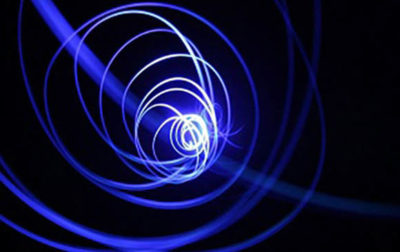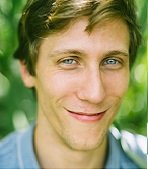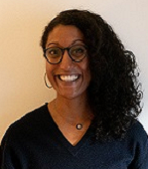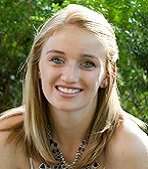Congratulations to the winners of the 2018 Lasker Essay Contest!
Since 2014, the Lasker Essay Contest has engaged young scientists in discussions about the role biomedical research plays in our society. This year, we asked participants to answer the question, “How can social media help build trust in science and the research enterprise?”
Young biomedical scientists and clinicians from more than 30 different countries around the world responded to the call, proposing a wide variety of creative approaches for promoting science using social media. From the abundance of excellent essays, the writing of David Hartmann from the Medical University of South Carolina rose to the top.
 “Numerous studies that show a general distrust of science forced me to think about why I trust in science,” Hartmann recalled. “Two big reasons called me on the phone that night: Dad and Grandpa. Their potentially lethal cancers (bladder and melanoma) were erased by the advances of medical research about a decade ago, meaning that their simple phone call was poignant evidence for the merits of research that I think anyone can appreciate.”
“Numerous studies that show a general distrust of science forced me to think about why I trust in science,” Hartmann recalled. “Two big reasons called me on the phone that night: Dad and Grandpa. Their potentially lethal cancers (bladder and melanoma) were erased by the advances of medical research about a decade ago, meaning that their simple phone call was poignant evidence for the merits of research that I think anyone can appreciate.”
Hartmann’s first-place winning essay, “Cancer survivors: outstanding advocates for trust in science,” proposed a social media campaign in which patients share how biomedical research directly improved their health and quality of life. He pointed out that people are likely to accept messages from those with whom they have established trusting relationships, and that non-scientists can affirm the benefits of research and advocate for science.
Debra Karhson from Stanford University focused on establishing trust through expert voices. In her second-place winning essay, “A verification vaccine for social contagion,” Karhson emphasized the need for a reliable way to distinguish accurate scientific information. She proposed a method for authenticating the profiles of science communicators so that readers can easily determine who consistently posts accurate information.
“As a translational neuroscientist researching autism, one of my primary challenges (especially in interpersonal conversations) is overcoming the wealth of false information on the subject,” Karhson said. “This year’s prompt for the Lasker Essay Contest provided me the opportunity to deeply research the technological advances in the digital dissemination of data and think innovatively about potential solutions accessible to both professional and personal audiences.”
Our third-place winner, Caroline Vissers from Johns Hopkins School of Medicine focused on expanding the diversity and communication skills of people posting scientific information on social media. Her essay, “Diversity at the top of the social media signaling cascade,” proposed that funding agencies require grantees to support diversity and that science students be trained to write. She argued that these efforts would expand the reach of online voices presenting scientific information.
“I feel strongly that social media is a powerful tool, but that we must look carefully at who is using it in order for it to be the most effective,” Vissers said. “Even if we train current scientists to perfectly use social media as a method of reaching the public, there will still be a gap in reaching groups that are traditionally underrepresented in science.”
For their winning essays, Hartmann, Karhson, and Vissers will receive $10,000, $5,000, and $2,500, respectively. They will also be invited to attend the Lasker Awards Luncheon in September, where they can meet several Lasker Laureates and celebrate with this year’s winners.
“This prize boosts my confidence that my voice can make a difference in shaping the discussions we have as a community of scientists,” Vissers said. “I have learned that there are many avenues to express myself, and that young scientists can create a space to discuss what we find critical both inside and outside of traditional avenues.”
First Place
David Hartmann, Medical University of South Carolina
 David Hartmann is a 7th year MD/PhD student at the Medical University of South Carolina. He just defended his dissertation on the ability of pericytes to regulate blood flow based on research he conducted in Andy Shih’s laboratory, and is now excited to return to the medical school portion of his training. While compiling and publishing the final pieces of his dissertation research, he’s also trying to release an indie rock album. He credits his academic, musical, and global explorations to great teachers and the support of family, friends, and his wife, Erica.
David Hartmann is a 7th year MD/PhD student at the Medical University of South Carolina. He just defended his dissertation on the ability of pericytes to regulate blood flow based on research he conducted in Andy Shih’s laboratory, and is now excited to return to the medical school portion of his training. While compiling and publishing the final pieces of his dissertation research, he’s also trying to release an indie rock album. He credits his academic, musical, and global explorations to great teachers and the support of family, friends, and his wife, Erica.
Essay Cancer survivors: outstanding advocates for trust in science
Second Place
Debra Karhson, Stanford University
 Debra Karhson is a postdoctoral fellow at Stanford University in the Psychiatry and Behavioral Sciences Department. She earned her BS degree in biomedical engineering from Drexel University and her PhD in Neuroscience from Tulane University. Broadly, Karhson leverages non-invasive cognitive neuroscience imaging tools, such as electroencephalography and transcranial magnetic stimulation, to investigate information processing in neurotypical and non-neurotypical human populations. Her current research focuses on understanding the role of social neuropeptide and endocannabinoids in information processing in children with and without autism.
Debra Karhson is a postdoctoral fellow at Stanford University in the Psychiatry and Behavioral Sciences Department. She earned her BS degree in biomedical engineering from Drexel University and her PhD in Neuroscience from Tulane University. Broadly, Karhson leverages non-invasive cognitive neuroscience imaging tools, such as electroencephalography and transcranial magnetic stimulation, to investigate information processing in neurotypical and non-neurotypical human populations. Her current research focuses on understanding the role of social neuropeptide and endocannabinoids in information processing in children with and without autism.
Essay A Verification Vaccine for Social Contagion
Third Place
Caroline Vissers, Johns Hopkins School of Medicine
 Caroline Vissers is a PhD candidate in the Biochemistry, Cellular, and Molecular Biology program at Johns Hopkins School of Medicine. She studies neural stem cell regulation in Hongjun Song’s lab, and has a passion for understanding how chemical modifications on mRNA regulate stem cell fate. She recently expanded her work to also study how hypoxia regulates breast cancer stem cells through mRNA chemical modifications in Gregg Semenza’s lab. Outside of science, she enjoys competing with her dog, Watson, in agility trials and listening to as much live music as possible.
Caroline Vissers is a PhD candidate in the Biochemistry, Cellular, and Molecular Biology program at Johns Hopkins School of Medicine. She studies neural stem cell regulation in Hongjun Song’s lab, and has a passion for understanding how chemical modifications on mRNA regulate stem cell fate. She recently expanded her work to also study how hypoxia regulates breast cancer stem cells through mRNA chemical modifications in Gregg Semenza’s lab. Outside of science, she enjoys competing with her dog, Watson, in agility trials and listening to as much live music as possible.
Essay Diversity at the Top of the Social Media Signaling Cascade
